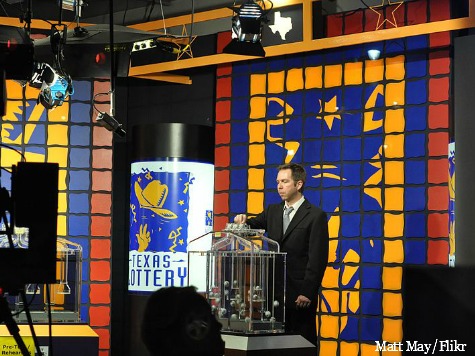
Electronic devices similar to slot machines may soon be coming to bingo halls around Texas. The proposed devices, which give bingo players “video confirmation” of wins and losses, will be discussed by the Texas Lottery Commission on April 16. The proposition has surfaced a long-fought battle in Texas, over whether or not casino-style gambling should be made legal in the state.
The Texas Lottery Commission claimed that the machines, proposed by K&B Sales and the Veterans of Foreign Wars-Department of Texas, will bring in significant revenue for charities. The mission statement of the Charitable Bingo Operations Division is to “provide authorized organizations the opportunity to raise funds for their charitable purposes by conducting bingo.”
According to the Texas Lottery, regulated charitable bingo became legal in 1981. Since then, over $1 billion has reportedly been given to Texas charities through bingo revenue.
Despite this, many oppose the new video bingo machines because they are similar to slot machines.
The Christian Life Commission of the Baptist General Convention of Texas opposes casino-style gambling in the state. A spokesman from the group, Rob Kohler, told the Associated Press of the proposed machines, “This changes the gaming landscape in the state.”
Texas is currently only one of ten states that do not allow casino-style gambling, according to Your Houston News.
Let Texans Decide, a group “focused on urging the state legislature to provide our citizens with the opportunity to vote on legalizing gaming,” argued that it would economically benefit the Lone Star State to allow such gambling.
A spokesman from the group told Breitbart Texas, “Due to legislative inaction, over $4 billion will be spent by Texans this year in neighboring states before the next legislative session begins.”
Let Texans Decide recently applauded gubernatorial candidate Wendy Davis for supporting a vote on casino-style gambling in Texas. Davis told the Ft. Worth Star- Telegram, “I’ve always said that issue should be decided by the voters of Texas. I would advance the bill to voters.”
But Tony McDonald, General Counsel for the political advocacy group Empower Texans, said expanding gambling in Texas could hurt the state more than it helps.
McDonald told Breitbart Texas, “The gambling industry sells false hope for people who don’t understand probabilities. The industry is designed to dazzle people and trick them out of their money. They give the free drinks for a reason–they want you to stick around. The longer you stay, the more likely you are to lose your money.”
He said it is often the poorest individuals and families in society who end up getting gamed by the system.
McDonald also pointed out that historically, the lottery has not funneled a significant amount of revenue into the state.
“There is a big problem with the revenue argument,” he said. “Supporters start trumpeting statistics of money going to the state from the lottery and people think, ‘We’re going to bring in tons of revenue for our schools.’ But in reality, the money collected from the lottery each year only funds about three days of the school year.”
Many assert that state-regulated bingo, which gives proceeds to charities rather than schools, is no more effective.
Section 2001.457 of Texas’ Bingo Enable Act states that after paying out winners and administrative costs, all remaining proceeds must go to charity. However, in a 2010 report, the State Auditors’ Office found that it is difficult to monitor bingo halls and ensure that the appropriate funding is being delivered to charitable organizations.
The report stated, “During the State Auditor’s Office’s on-site visits at five bingo halls, auditors identified discrepancies that indicate the Agency should increase its financial monitoring.”
Regardless of charitable giving, it is clear that Texans enjoy gambling in the form of bingo: the most recent statistics available from the Lottery Commission show that bingo sales totaled $700 million in 2011, an all-time high.
McDonald warned that as gambling becomes more popular in Texas, burdensome regulations in the state will only grow in size and scope.
“The problem is, when we talk about gambling, we’re not talking about getting together in a room and having a poker game,” he said. “We’re not talking about a free activity in the market. Gambling is one of the most regulated industries in the U.S. By legalizing gambling, you’re creating another stake holder in government.”
He concluded by joking, “Battleground Texas would love nothing more than a cash cow of casinos to fund liberal Democrats.”
Follow Kristin Tate on Twitter @KristinBTate

COMMENTS
Please let us know if you're having issues with commenting.